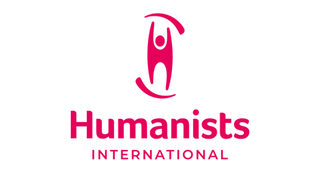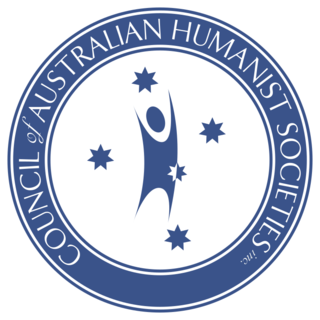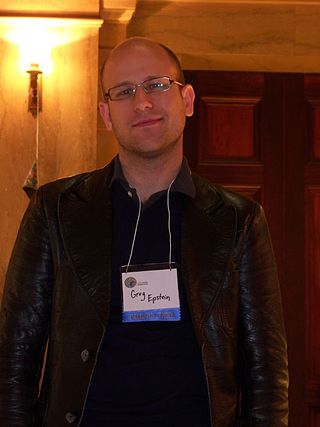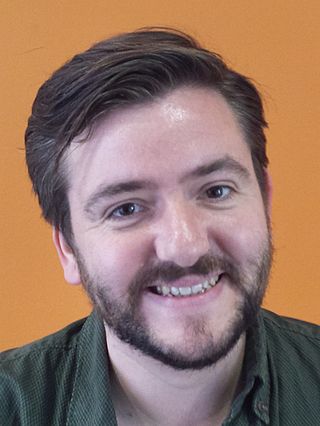
Secular humanism is a philosophy, belief system or life stance that embraces human reason, secular ethics, and philosophical naturalism while specifically rejecting religious dogma, supernaturalism, and superstition as the basis of morality and decision making.

Religious humanism or ethical humanism is an integration of nontheistic humanist ethical philosophy with congregational rites and community activity which center on human needs, interests, and abilities. Self-described religious humanists differ from secular humanists mainly in that they regard the nontheistic humanist life stance as a non-supernatural "religion" and organising using a congregational model.

The American Humanist Association (AHA) is a non-profit organization in the United States that advances secular humanism.

Humanists UK, known from 1967 until May 2017 as the British Humanist Association (BHA), is a charitable organisation which promotes secular humanism and aims to represent "people who seek to live good lives without religious or superstitious beliefs" in the United Kingdom by campaigning on issues relating to humanism, secularism, and human rights. It seeks to act as a representative body for non-religious people in the UK.

The Ethical movement, also referred to as the Ethical Culture movement, Ethical Humanism or simply Ethical Culture, is an ethical, educational, and religious movement that is usually traced back to Felix Adler (1851–1933). Individual chapter organizations are generically referred to as "Ethical Societies", though their names may include "Ethical Society", "Ethical Culture Society", "Society for Ethical Culture", "Ethical Humanist Society", or other variations on the theme of "Ethical".

Humanists International is an international non-governmental organisation championing secularism and human rights, motivated by secular humanist values. Founded in Amsterdam in 1952, it is an umbrella organisation made up of more than 160 secular humanist, atheist, rationalist, agnostic, skeptic, freethought and Ethical Culture organisations from over 80 countries.

The Secular Coalition for America is an advocacy group located in Washington D.C. It describes itself as "representing the interests of atheists, humanists, freethinkers, agnostics, and other nontheistic Americans."

The Council of Australian Humanist Societies (CAHS) is an umbrella organisation for Australian humanist societies. It was founded in 1965. It is affiliated with Humanists International. The official symbol of CAHS is the Happy Human.

The Humanist Association of Ireland (HAI) is a Republic of Ireland secular humanist organisation that was founded in 1993 to promote Humanism, which they describe as:
an ethical philosophy of life, based on a concern for humanity in general, and for human individuals in particular. This view of life combines reason with compassion. It is for those people who base their interpretation of existence on the evidence of the natural world and its evolution, and not on belief in supernatural power.
Accurate demographics of atheism are difficult to obtain since conceptions of atheism vary considerably across different cultures and languages, ranging from an active concept to being unimportant or not developed. Also in some countries and regions atheism carries a strong stigma, making it harder to count atheists in these countries. In global studies, the number of people without a religion is usually higher than the number of people without a belief in a deity and the number of people who agree with statements on lacking a belief in a deity is usually higher than the number of people who self-identify as "atheists".

The following outline is provided as an overview of and topical guide to humanism:

Greg M. Epstein is the president of the Harvard Chaplains Organization and Humanist Chaplain at Harvard University and the Massachusetts Institute of Technology. He is an ordained Humanist Rabbi, and has been influential in American humanism as a blogger, spokesperson, adviser and author of the New York Times bestsellerGood Without God: What a Billion Nonreligious People Do Believe. Epstein was an expert on the first three seasons of the reality show "Married at First Sight."

Andrew James William Copson, FRSA, FCMI, MCIPR is a Humanist leader and writer. He is the Chief Executive of Humanists UK and the President of Humanists International.

The Birmingham Humanist Group was formed on 23 May 1962 at the Arden Hotel, New Street, Birmingham, England, at a meeting convened by Dr Anthony Brierley. It changed its name to Birmingham Humanists in 2000 and voted to become a Partner Group of the BHA, which changed its name to Humanists UK in 2017. It holds most of its meetings at the rooms of the Community Development trust in Moseley, Birmingham.
As of 2020, 20% of Singaporeans have no religious affiliation. The rate of irreligion is different among ethnic groups of Singapore: about 26% of Chinese residents have no religion, compared to just 0.4% of Malay residents and 2.2% of Indian residents. Age is an also important factor, as around 24% of people aged 15 to 24 indicated they had no religious connection, compared to 15% of residents aged 55 and over in the last census.

Non-Prophet Week is an annual charity week for the irreligious in the United Kingdom and Ireland, and is coordinated by the Humanist Students. During the week, AHS societies and similar organisations in Ireland and the UK are encouraged to run charity events. The week has had different themes. Sometimes a charity has been chosen, other times groups have been encouraged to volunteer their time, donate blood and raise money for any cause or issue that they feel is important. So far over 200 Non-Prophet Week events have taken place in around 30 different cities. Over £12,000 has been raised and donated to charity.
The secular movement refers to a social and political trend in the United States, beginning in the early years of the 20th century, with the founding of the American Association for the Advancement of Atheism in 1925 and the American Humanist Association in 1941, in which atheists, agnostics, secular humanists, freethinkers, and other nonreligious and nontheistic Americans have grown in both numbers and visibility. There has been a sharp increase in the number of Americans who identify as religiously unaffiliated, from under 10 percent in the 1990s to 20 percent in 2013. The trend is especially pronounced among young people, with about one in three Americans younger than 30 identifying as religiously unaffiliated, a figure that has nearly tripled since the 1990s.

Atheism in the African diaspora is atheism as it is experienced by black people outside of Africa. In the United States, blacks are less likely than other ethnic groups to be religiously unaffiliated, let alone identifying as atheist. The demographics are similar in the United Kingdom. Atheists are individuals who do not hold a belief in God or gods. Atheism is a disbelief in God or gods or a denial of God or gods, or it is simply a lack of belief in gods. Some, but not all, atheists identify as secular humanists, who are individuals who believe that life has meaning and joy without the need for the supernatural or religion and that all individuals should live ethical lives which can provide for the greater good of humanity. Black atheists and secular humanists exist today and in history, though many were not always vocal in their beliefs or lack of belief.
The Humanist Association of Ghana (HAG) is a humanist organization of atheists and agnostics living in Ghana who espouse humanism as a way of life, fight for the protection of human rights and promote critical thinking.












